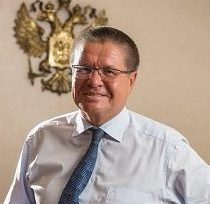
Russian prosecutors have asked a court to send a former economic development minister to a high-security prison for 10 years.
Alexei Ulyukayev, the highest-ranking Russian official to have been arrested since 1993, was detained last year at the headquarters of Russia’s largest oil producer, the state-owned Rosneft, after a sting operation by Russia’s main intelligence agency.
Ulyukayev denies the charges and says Rosneft’s influential chief executive Igor Sechin has set him up.
The circumstances of the case have ignited speculation that Ulyukayev fell victim to a Kremlin power play by Mr Sechin, a longtime associate of President Vladimir Putin.
A prosecutor on Monday in his remarks during cross-examination asked the court to find Ulyukayev guilty of extorting a two million US dollars bribe from Mr Sechin and send him to a high-security prison for 10 years as well as fining him roughly 8.5 million US dollars.
Ulyukayev deserves such a harsh penalty because his actions “are undermining the authority of the government”, the prosecutor told the court.
Prosecutors have said Ulyukayev was extorting a bribe from Mr Sechin in return for giving the green light to Rosneft’s purchase of another oil company.
Ulyukayev has spoken out against increasing government presence in the Russian economy.
He had originally opposed Rosneft’s bidding for the other company, Bashneft, saying it was wrong for a state-owned company to take part in a privatisation drive.
The former ministry has described himself as a victim of a “provocation” staged by Mr Sechin and security officials.
Ulyukayev’s lawyer insists that his client could not possibly have been extorting a bribe from Mr Sechin in return for giving his approval for Rosneft’s purchase of Bashneft because the deal required a government approval that was not in his powers.
The trial has been going on for months, and at some point risked becoming a major humiliation for Mr Sechin who had been summoned to give evidence.
Mr Sechin has harshly criticised the prosecutors for making some of his conversations public during the trial, saying they contained sensitive information.
Some observers have suggested that the ongoing trial may have failed to meet Mr Sechin’s expectations and dented his standing.
But Mr Sechin, whose relationship with Mr Putin goes back two decades, has managed to dodge the summons four times, citing urgent matters of business.
The court turned down the defence’s fifth and final plea last week to summon Mr Sechin, whose evidence was the cornerstone of the case.